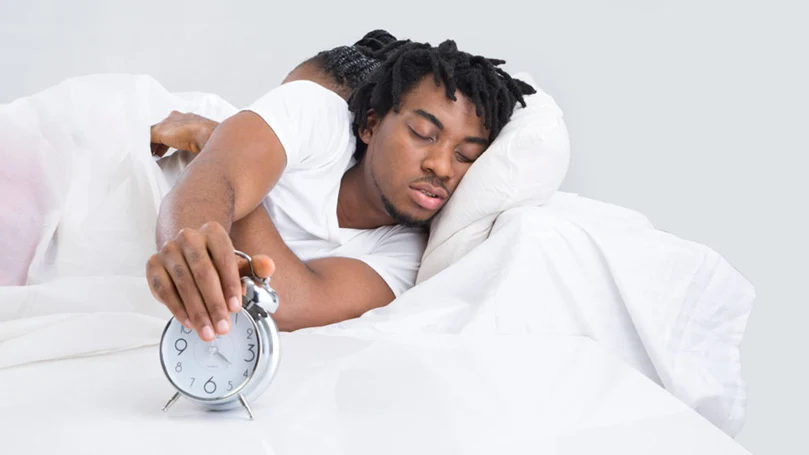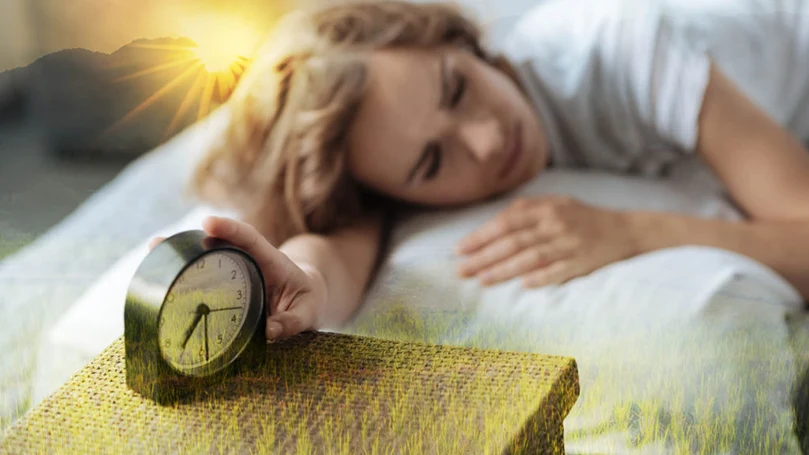
Before we start talking about different causes of oversleeping, let’s make a difference between two main types of this condition. Oversleeping can occur as a temporary, spontaneous or a short-term problem caused by non-permanent conditions. The other type is when a person has a long-term, steady history of oversleeping. This is called chronic oversleeping. In the first case, oversleeping is not a serious problem since the temporary factors trigger it. Usually, as soon as the temporary causes disappear, so does the problem.
What can be an issue behind oversleeping?
As you know, every consequence has its reason or reasons. When it comes to oversleeping, there might be several issues that you are or aren't aware of at all.
Alcohol or medication abuse
This is a temporary issue if your issue with alcohol is temporary. After a night of drinking it’s normal to oversleep, but if you make it a habit you can damage your health permanently and seriously.

SAD (Seasonal affective disorder)
SAD triggers oversleeping and it usually doesn’t make any serious damage. It passes along with the winter months.
Adjusting to a time-zone
This occurs for the obvious reasons and usually goes away in a few days or a week. Changing the time-zone can also trigger temporary insomnia.
Pregnancy
Oversleeping is a typical symptom of the first trimester. It’s quite common for an early pregnancy and it usually goes away in the second trimester.

Stress and exhaustion
Temporary stress and exhaustion caused by a short-term change at work, school or training habits can cause oversleeping. As soon as you recover yourself it should go away.
Flu or other illnesses
Fever can oftentimes cause oversleeping. Low blood pressure or fatigue caused by anaemia can have the similar effect.
Vacations or weekends
Almost everybody likes to sleep in on Sunday, but don’t go overboard with it. You just might wake up with a headache. Remember, moderation is the key.
Oversleeping caused by temporal conditions is one thing, but if you tend to oversleep every day for a long period a time, that’s another thing. Chronic oversleeping can lead to serious health issues. Unfortunately, it can also be provoked by serious issues.

Physical issues
In most cases, psychological factors are the ones that cause chronic oversleeping. There are not many physical illnesses that stand behind this sleeping disorder, but it can happen. Obesity is one of the most common physical conditions that cause oversleeping. Besides this, if you are suffering from anaemia, it might happen to you to develop a habit of oversleeping. People who are underlying serious illnesses tend to oversleep. In this case, more sleeping hours may be necessary for body’s recovery or enduring aggressive treatments.
Psychological factors
Depression, loss of motivation and low self-esteem can all cause tendency for oversleeping. Lack of motivation, will and ambition are usually the prime suspects for this sleeping disorder. Oversleeping can even be a symptom of clinical depression.
People with low self-esteem may shut themselves out of the world. They can have fewer activities and poorer social life, which can result in oversleeping. A person that lacks ambition may feel like they have time for wasting, so spending some extra hours on sleep would go without regret. On the other hand, some depressed people fall into the vicious cycle of oversleeping and afterwards regretting it. This just creates more and more emotional stress.

Social life
Studies show that wealthy and successful people tend to sleep less than poor or underachieving people do. We can look at these statistics both as a clue for the cause and for the consequence. Successful, busy, ambitious people want to spend more time doing useful things, and not wasting it on sleep. They want to stay alert and to find more time to accomplish all that they want.
We can look at this from another angle also. People who have problems with their social status and finances can develop a problem with low self-esteem. This would make them less confident to go out there and try to make their lives richer and spend time in a more rewarding way.
Some experts even think that one of the reasons why oversleeping is more common among the poorer population lies in the healthcare. Poorer people can’t afford quality medical care like wealthy people can. So, experts believe that poorer people can suffer from some undiagnosed diseases that make them oversleep. In these cases, a person wouldn’t even be aware of the problem that is making them oversleep.
Negative effects of oversleeping
Having too much sleep can cause many problems for your health. Judging by the recent studies, oversleeping can cause heart diseases, weight-gain or obesity, diabetes, back-pains and headaches. It can also influence memory and cognitive abilities. Oversleeping can lead to reduced concentration and alertness, depression, anxiety and even dementia. Social side-effects of oversleeping can be underachieving at job or school and poorer social life.

Benefits of oversleeping
We all know the stories about some famous people sleeping more than 9 or 10 hours. But is it really good? Some claim that oversleeping slows down the ageing process, but so does the 8 hours of sleep. Healthy sleep of 7 to 9 hours also keeps your skin rested and glowing. So, is there really a need for more?
Don't forget that those famous people who tend to oversleep also spend days in extremely demanding and challenging activities. Having 13 exhausting hours per day means that you'll probably need a 10-hour sleep.

Final words
Psychological and social factors usually provoke the habit of oversleeping. In rare cases, the cause of this sleeping disorder cannot be determined. That is called idiopathic hypersomnia. If the symptoms of hypersomnia can’t be controlled at all by the person then it can become narcolepsy.
A simple thing as loss of habit for late-night leisure like reading books or watching movies can make a person start catching more sleep. Usually, oversleeping is just a habit developed due to the depression, lack of motivation, poor social life and various insecurities. In these cases, a person actually trains their brain to demand more sleep. The solutions for this issue is rather simple: one needs to train their mind to be satisfied with less sleep and to be more alert upon waking up.
















There are no comments yet
"*" indicates required fields